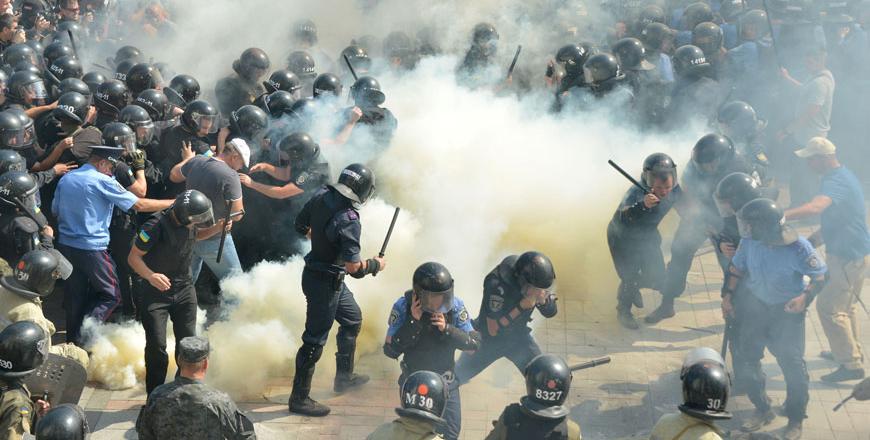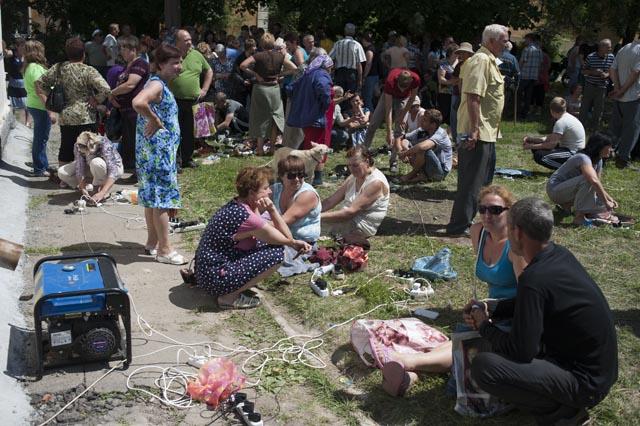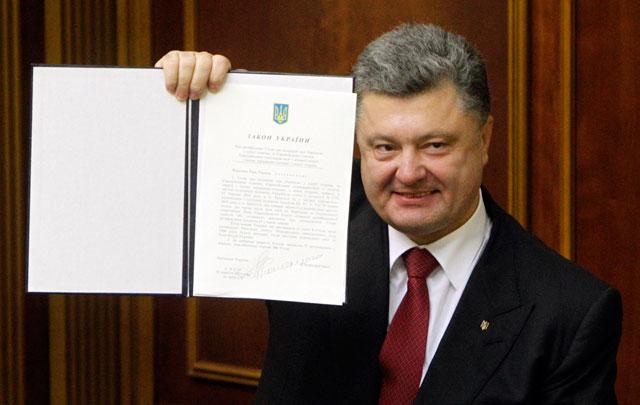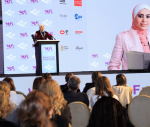You are here
Guardsman killed in protests as Ukraine MPs back more autonomy for rebel regions
By Reuters - Aug 31,2015 - Last updated at Aug 31,2015

Smoke rises near the parliament building in Kiev as activists of radical Ukrainian parties, including the Ukrainian nationalist party Svoboda (Freedom), clash with police officers on Monday (AFP photo)
KIEV — A national guardsman was killed and nearly 90 others protecting Ukraine's parliament were wounded by grenades hurled by protesters on Monday, the Interior Ministry said, as deputies backed reforms to give more autonomy to rebel-held areas.
The violence, which Interior Minister Arsen Avakov blamed on the main nationalist party, and division in the pro-Western camp in parliament suggested President Petro Poroshenko faces an uphill battle to push through key parts of a faltering peace agreement reached in February for eastern Ukraine.
Poroshenko's spokesman said the president would address the nation later on Monday following the clashes outside parliament, where deputies loyal to him managed to push through a first reading of a "decentralisation" draft law — but only in the face of strong criticism from some of his political allies.
The violence came after the deputies voted by 265 in favour of the first reading of the bill — 39 more than that required to pass — at a boisterous session with many deputies shouting "Shame!" and rhythmically beating parliamentary benches.
Opponents of the bill said it played into Russia's hands and would lead ultimately to Ukraine losing control over the Donbass - the name given to the industrialised east, swathes of which are controlled by separatists now.
Interior Minister Arsen Avakov, in a tweet, said nearly 90 national guardsmen had been hurt, four of them with serious wounds to the eyes, stomach, neck and legs, by several explosive devices that were lobbed at them from crowds massed outside.
Blaming members of the main Ukrainian nationalist party, Svoboda (Freedom), Avakov addressed himself to Svoboda leader Oleh Tyahnybok, saying: "Tell me, how does Svoboda differ from the bastards who shoot at our national guard at the front?"
One of his advisers, Anton Geraschenko, said a 25-year-old national guardsman, who had been called up only in spring, had died of a gunshot wound in the heart.
But Avakov himself later said this account was not true. "He died of splinters from grenades, not a gunshot wound," he said.
Though the bill passed on its first reading, many coalition allies, including former prime minister Yulia Tymoshenko, spoke against it and it is open to question whether Poroshenko will be able to whip up the necessary 300 votes for it to get through a second and final reading later this year.
Approval of legislation for special status for parts of Donetsk and Luhansk regions, which are largely controlled by Russian-backed separatists, is a central element of a peace agreement reached in Minsk, Belarus, in February.
Though a ceasefire is under pressure from sporadic shelling and shooting which government troops and rebels blame on each other, Western governments see the deal as holding out the best possible prospects for peace and are urging Ukraine to abide by the letter of the Minsk agreement.
Border control
"This [the bill] will give our Western partners the ability to put pressure on Russia to fulfil three basic points of the Minsk agreement — the ceasefire, withdrawal of Russian forces from Ukraine and re-establishment of control over the border," said Maksim Burbak of Prime Minister Arseny Yatseniuk's Popular Front party.
"We have to support the international 'anti-Putin' coalition," said Yuri Lutsenko of the Poroshenko bloc, referring to Russian President Vladimir Putin.
Opponents say it gives Putin the upper hand in the east.
We believe that these anti-Ukrainian changes to the Constitution... are a road to realisation of Putin's plan for destroying Ukraine," said Radical party leader Oleh Lyashko.
"This is not the road to peace but to decentralisation. This is a diametrically opposed process which forces us to lose territory," said Tymoshenko.
"Putin does not need the Donbass. He needs war in Ukraine. Our task in the vote is to get back to negotiations on the right road to bring peace, not the illusion of peace," she said.
The foreign ministers of Russia, Ukraine, Germany and France will meet by the middle of September to discuss the conflict, Kremlin adviser Yuri Ushakov told reporters on Monday.
The dissent in parliament and protests outside showed that Poroshenko might be facing an uphill task to "sell" vital parts of the Minsk agreement to his people and increasingly restive pro-government paramilitary groups before the turn of the year.
That is when other elements of the agreement, including local elections, are supposed to be in place and Ukraine is supposed to have regained control of its border with Russia.
More than 6,500 people have been killed in the east since pro-Russian separatists rebelled against the Kiev government after Russia annexed Crimea in response to the ousting of a Moscow-backed president by street protests and his replacement by a pro-Western leadership.
Related Articles
Ukraine’s interior minister said on Saturday that most pro-Russian rebels and their top commander had fled their main eastern stronghold in what would be Kiev’s biggest success of the nearly three-month campaign.
Ukraine's president said on Wednesday Russia had removed the bulk of its forces from his country, raising hopes for a peace drive now under way after five months of conflict in which more than 3,000 people have been killed.
Ukraine ratified a sweeping agreement with the European Union on Tuesday — an issue at the heart of the Russia-West crisis over its future — and sought to blunt the independence drive of Russian-backed separatists by offering them temporary and limited self-rule.


















